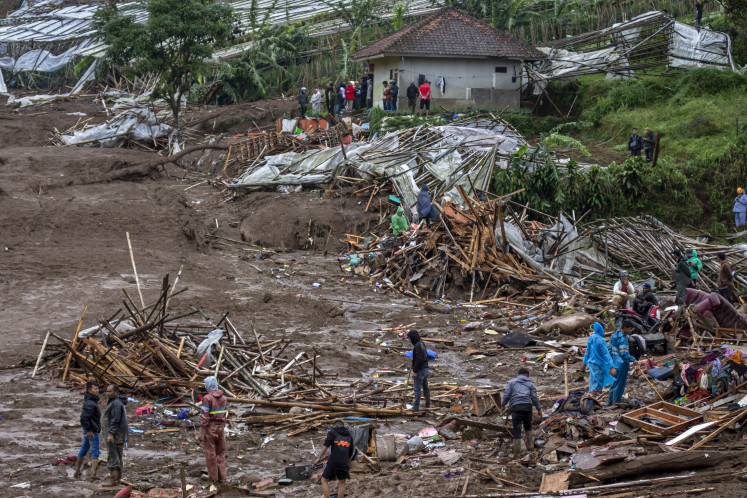Popular Reads
Top Results
Can't find what you're looking for?
View all search resultsPopular Reads
Top Results
Can't find what you're looking for?
View all search resultsYour letters: Asylum seekers not 'illegal migrants'
On behalf of the Indonesian Civil Society Network for Refugee Rights Protection (Suaka), I wish to correct some points made by Hikmahanto Juwana in his opinion piece entitled 'Australia breaches RI sovereignty?' (The Jakarta Post, March 13)
Change text size
Gift Premium Articles
to Anyone
O
n behalf of the Indonesian Civil Society Network for Refugee Rights Protection (Suaka), I wish to correct some points made by Hikmahanto Juwana in his opinion piece entitled 'Australia breaches RI sovereignty?' (The Jakarta Post, March 13).
I do not make any comments on Hikmahanto's analysis of international law in relation to Indonesia's sovereignty. However, he has made some errors in reference to asylum seekers.
The term 'asylum seeker' is generally used for people who wish to make an application for refugee status to the Office of the United Nations High Commissioner for Refugees (UNHCR), claiming that they need international protection because of persecution for one or more of the reasons set out in Article 1A of the 1951 Convention relating to the Status of Refugees. Those grounds are persecution for reasons of race, religion, nationality, membership of a particular social group or political opinion.
Asylum seekers are not 'illegal migrants' merely because they do not possess the correct passports and visas. Some people who may need international protection as refugees may have never had papers or even the opportunity to obtain them. For example, if someone is born stateless or to an ethnic group that is not recognized by a state, where they have been systematically discriminated against, they may have been unable to get a birth certificate or any form of identification, let alone a passport or visa. Others who may be on political watch lists may not be able to escape under their own names. Each case is different and in Indonesia, the UNHCR is responsible for assessing each claim for refugee status by registered asylum seekers.
Further, statelessness refers to the status under international law of an individual who is not considered a national by any state. UNHCR notes that although stateless people may sometimes also be refugees, the two categories have separate legal characteristics. UNHCR considers both groups to be persons of concern.
Because Indonesia is not a party to the 1951 Convention relating to the Status of Refugees or the 1967 Protocol, asylum seekers and refugees (and stateless people) here face difficulties staying in the country. For various reasons, some may choose to make the dangerous boat journey to Australia in an attempt to seek effective protection there. However, the Australian government, as a signatory to the Refugee Convention, cannot exempt itself from its obligations under international law simply by labeling the asylum seekers as 'illegal immigrants' and pushing them back to Indonesia.
Suaka notes the protection of asylum seekers and refugees is a regional human rights issue that goes beyond merely focusing on crime and the sovereignty of individual countries' borders. Bilateral and regional cooperation to address irregular people movements must take a rights-based approach to developing a regional solution. The measures put in place must provide fundamental human rights protections as well as adequate support and assistance for asylum seekers and refugees, rather than leaving them without any hope or means of survival.
Febionesta
Co-Chair Indonesian Civil Society Network for Refugee Rights Protection (Suaka)
Jakarta










